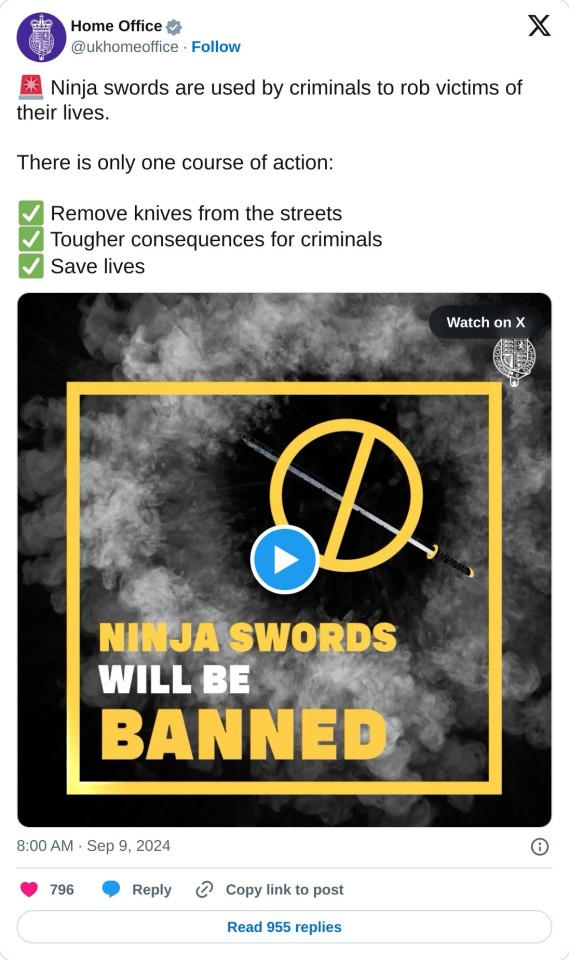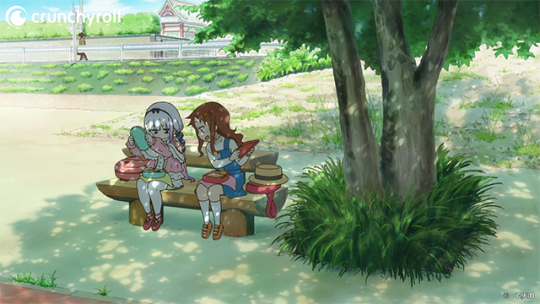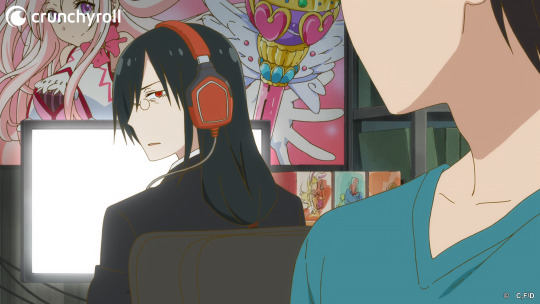#and most of that time my cultural understanding of the zeitgeist was rather limited
Explore tagged Tumblr posts
Text
Pretty sure this isn't even the first rodeo for the UK. Remember their 80s and 90s scare of everything related to ninjas?
True story: in the UK, Teenage Mutant Ninja Turtles was changed into Teenage Mutant Hero Turtles for distribution. Because my dad on his work travels to the UK discovered that video cassettes were much cheaper there than in Sweden, he would buy all kinds of movies and cartoons on tape there and bring home to us. (I credit a lot of my early developed English skills to this.) The point is that is how I know that they very obviously edited the intro. Yet, funnily enough, the general references to ninjas remained throughout the show. Probably because it's one thing to cut in "hero" instead of "ninja" into an intro sequence, but doing so for all the dialogue just wouldn't work.
There was throughout the 80s and 90s a sort of ninja craze going on, as part of the wider action movie craze. Pretty sure it's to blame for New York's ban on nunchuks as well.

Who had “English government enacts Haito Edict” on their 2024 bingo?
#uk politics#honestly the 80s and 90s were all about the Japanese and Chinese martial arts#particularly karate kung fu and judo#might be related to the economic boom of Japan and their massive exports that of course came to include anime#pretty sure that#teenage mutant ninja turtles#was created originally as a satire on this#that all comic books needed teenagers mutants and ninjas#which I think is why the same incident canonically gave us both the Turtles and Daredevil#unlike a lot of tumblr I lived through the 80s and 90s and it was wild!#granted I only lived through half of the eighties#and most of that time my cultural understanding of the zeitgeist was rather limited
22K notes
·
View notes
Note
Would love to hear about your beefs with Lucas because I have beefs with Lucas
(Sorry it took me three thousand years to answer this, anon.)
They mainly fall under a few headings, with the third being the most serious and the thing that I am genuinely irl furious about at least biannually (and feeling unable to adequately sum up The Problem with it after yelling about it so often is a huge part of why this post has been in my drafts for such a long time):
1. His self-mythologising and the subsequent uncritical repetition of his bullshit in the fandom. Obvious lies like that he had some master plan for 10 films when it’s clear he did not have anything like a plot outline at any point. We all know the thing was written at the seat of various people’s pants, it’s blatantly self-evident that’s the case. There’s also plenty of public record about how the OT was written. Even dumber, more obvious lies, like that Anakin was ‘always the protagonist’ and the entire 6 films were his story from the beginning. This is preposterous and every time someone brings it up (usually with palpable smugness) as fanboys ‘not understanding star wars’ because they don't get that ‘the OT is not Luke's story’... Yeah, I just... I cannot.
Vader wasn’t Anakin Skywalker until ESB, it’s a retcon. It’s a brilliant retcon and it works perfectly, it elevated SW into something timeless and special it otherwise would not have been, but you can tell it wasn’t the original plan and there’s proof it wasn’t the original plan. Let’s not pretend. And Luke is the protagonist. No amount of waffling about such esoteric flights of theory as ‘ring structure’ is going to get away from the rigidly orthodox narrative and the indisputable fact that it is Luke’s hero’s journey. Vader’s redemption isn’t about his character development (he has almost none) and has no basis in any kind of convincing psychological reality for his character, but it doesn’t need to be because it’s part of Luke’s arc, because Vader is entirely a foil in Luke’s story. It’s a coming-of-age myth about confronting and growing beyond the father.
All attempts to de-centre Luke in RotJ just break the OT’s narrative logic. It’s a character-driven story and the character driving is Luke. Trying to read it as Anakin’s victory, the moral culmination of his choices rather than Luke’s and putting all the agency into Anakin’s hands just destroys the trilogy’s coherence and ignores most of its content in favour of appropriating a handful of scenes into an arc existing only in the prequels. The dilemma of RotJ is how Luke will define ethical adulthood after learning and growing through two previous films worth of challenge, education, failure, and triumph; it’s his choice to love his father and throw down his sword which answers the question the entire story has been asking. Vader’s redemption and the restoration of the galaxy are the consequences of that choice which tell us what kind of world we’re in, but the major dramatic conflict was resolved by Luke’s decision not the response to it.
And, just all over, the idea of Lucas as an infallible auteur is inaccurate and annoying to me. Obviously he’s a tremendous creative force and we wouldn’t have sw without him, but he didn’t create it alone or out of whole cloth. The OT was a very collaborative effort and that’s why it’s what it is and the prequels are what they are. Speaking of which.
2. The hubris of the prequels in general and all the damage their many terrible, protected-from-editors choices do to the symbolic fabric of the sw universe. Midicholrians, Yoda fighting with a lightsabre, Obi-wan as Anakin's surrogate father instead of his peer, incoherent and unmotivated character arcs, the laundry list of serious and meaningful continuity errors, the bad storytelling, the bad direction, the bad characterisation, the shallowness of the parallels which undermine the OT’s imagery, the very clumsy and contradictory way the A/P romance was handled, the weird attitude to romance in general, it goeth on. I don’t want to re-litigate the entire PT here and I’m not going to, but they are both bad as films and bad as prequels. The main idea of them, to add Anakin’s pov and create an actual arc for him as well as to flesh out the themes of compassion and redemption, was totally appropriate. The concept works as a narrative unit, there are lots of powerful thematic elements they introduce, they have a lot of cool building blocks, it’s only in execution and detail that they do a bunch of irreparable harm.
But the constant refrain that only ageing fanboys don’t like them and they only don’t like them because of their themes or because they humanise Anakin... can we not. The shoddy film making in the prequels is an objective fact. If you want to overlook the bad parts for the good or prioritise ideas over technique, that’s fine, but don’t sit here and tell me they’re masterworks of cinema there can be no valid reason to criticise. I was the exact right age for them when I saw them, I am fully on board with the fairy tale nature of sw, I am fully on board with humanising Anakin- the prequels just have a lot of very big problems with a) their scripts and b) their direction, especially of dialogue scenes. If Lucas had acknowledged his limitations like he did back in the day instead of believing his own press, he could have again had the help he obviously needed instead of embarrassing himself.
3. Killing and suppressing the original original trilogy. I consider the fact that the actual original films are not currently available in any form, have never been available in an archival format, and have not been presented in acceptable quality since the VHS release a very troubling case study in the problems of corporate-owned art. LF seizing prints of the films whenever they are shown, destroying the in-camera negatives to make the special editions with no plans to restore them, and doing all in the company’s considerable power to suppress the original versions is something I consider an act of cultural vandalism. The OT defined a whole generation of Hollywood. It had a global impact on popular entertainment. ANH is considered so historically significant it was one of the first films added to the US Library of Congress (Lucas refused to provide even them with a print of the theatrical release, so they made their own viewable scan from the 70s copyright submission).
The fact that the films which made that impact cannot be legally accessed by the public is offensive to me. The fact that Lucas has seen fit to dub over or composite out entire performances (deleting certain actors from the films), to dramatically alter the composition of shots chosen by the original directors, to radically change the entire stylistic tone by completely reinventing the films’ colour timing in attempt to make them match the plasticy palate of the prequels, to shoot new scenes for movies he DID NOT DIRECT, add entire sequences or re-edit existing sequences to the point of being unrecognisable etc. etc. is NOT OKAY WITH ME when he insists that his versions be the ONLY ones available.
I’m okay with the Special Editions existing, though I think they’re mostly... not good... but I’m not okay with them replacing the original films. And all people can say is ‘well, they’re his movies’.
Lucas may have clear legal ownership in the capitalistic sense, but in no way does he have clear artistic ownership. Forget the fans, I’m not one of those people who argue the fans are owed something: A film is always a collaborative exercise and almost never can it be said that the end product is the ultimate responsibility and possession of one person. Even the auteur directors aren't the sole creative vision, even a triple threat like Orson Welles still had cinematographers and production designers, etc. Hundreds of artists work on films. Neither a writer nor a director (nor one person who is both) is The Artist behind a film the way a novelist is The Artist behind a novel. And Lucas did NOT write the screenplays for or direct ESB or RotJ. So in what sense does he have a moral right to alter those films from what the people primarily involved in making them deemed the final product? In what sense would he have the right to make a years-later revision the ONLY version even if he WERE the director?
Then you get into the issue of the immeasurable cultural impact those films had in their original form and the imperative to preserve something that is defining to the history of film and the state of the zeitgeist. I don't think there is any ‘fan entitlement’ involved in saying the originals belonged to the world after being part of its consciousness for decades and it is doing violence to the artistic record to try to erase the films which actually occupied that space. It's exactly like trying to replace every copy of It's a Wonderful Life with a colourised version (well, it's worse but still), and that was something Lucas himself railed against. It’s like if Michaelangelo were miraculously resuscitated and he decided to repaint the Sistine Ceiling to add a gunfight and change his style to something contemporary.
I get genuinely very upset at the cold reality that generations of people are watching sw for the first time and it’s the fucking SE-except-worse they’re seeing. And as fewer people keep physical media and the US corporate oligarchy continues to perform censorship and rewrite history on its streaming services unchecked by any kind of public welfare concerns, you’ll see more and more ‘real Mandela effect’ type shit where the cultural record has suddenly ‘always’ been in line with whatever they want it to be just now. And US media continues to infect us all with its insidious ubiquity. I think misrepresenting and censoring the past is an objectively bad thing and we can’t learn from things we pretend never happened, but apparently not many people are worried about handing the keys to our collective experience to Disney and Amazon.
4. The ‘Jedi don’t marry’ thing and how he wanted this to continue with Luke post-RotJ, so it’s obviously not meant to be part of what was wrong with the order in the prequels. I find this... incoherent on a storytelling level. The moral of the anidala story then indeed becomes just plain ‘romantic love is bad and will make you crazy’, rather than the charitable reading of the prequels which I ascribe to, which is that the problem isn’t Anakin’s love for Padmé, it’s that he ceased to love her and began to covet her. And I can’t help but feel this attitude is maybe an expression of GL’s issues with women following his divorce. I don’t remember if there’s evidence to contradict that take, since it’s been some time since I read about this but yeah. ANH absolutely does sow seeds for possible Luke/Leia development and GL was still married while working on that film. Subsequently he was dead set against Luke ever having a relationship and decided Jedi could not marry. Coincidence?
There’s a lot of blinking red ‘issues with women’ warning signs all over Lucas’s work, but the prequels are really... egregious.
#sw#salt#more unhinged rambling#anyway dowload the despecialised editions#unsubscribe from Disney+#be free#usually we'd be having a big family thing for Boxing Day but you know#so God bless us all at home separately#I hope everyone had as happy a Christmas as possible in keeping with the situation#I should see if I can drag my brother outside to build a snowman
42 notes
·
View notes
Text
INTERVIEW: Miss Kobayashi's Dragon Maid and the Directors' Legacy

Additional reporting by Kyle Cardine
On July 7th, Kyoto Animation released the first episode of Miss Kobayashi’s Dragon Maid S, the second season of the Dragon Maid franchise. This marked not only the return of a fan-favorite series, but the comeback of the globally beloved studio as a whole. We wrote on Kyoto Animation’s indomitable spirit in our interview with studio president Hideaki Hatta last year, and now we see that spirit communicated through Dragon Maid’s incredible dual capacity for intricately animated sequences and depth of emotional expression.
On the occasion of both Miss Kobayashi’s Dragon Maid and Kyoto Animation’s latest return to anime, Crunchyroll News had the opportunity to talk with Tatsuya Ishihara, the director of the second season of the series, about Dragon Maid’s return, his responsibilities as incoming director and more.

Ishihara the Director
Tatsuya Ishihara is a long-time Kyoto Animation director who has produced some of anime’s sharpest comedy sequences alongside some of the most emotionally resonant, often in the same series. “I’ve had experience with works that combine comical and serious aspects, and I like them,” Ishihara said when asked about this continuing theme. “I find them rather fun and easy to do.” Though it may be humble, his answer gestures towards his immense talent for finding the poignant within the comedic, as well as the comedic within the poignant, a talent we can trace through his entire career with the studio.
In 2005, Ishihara made his directorial debut at Kyoto Animation with the adaptation of the Key Visual novel Air. His philosophy of negotiating his own interpretation of a work with audience expectation can be seen throughout his career, starting with Air and continuing into adaptations of two more Key visual novels—Kanon and the acclaimed Clannad. “I’m not an artist trying to express my own sense of self. I’m thinking of the viewers and their expectations. My job as director is to marry my own interpretation of a work with viewer expectations,” Ishihara would later say in the Love, Chunibyo & Other Delusions limited edition box set booklet.
However, the first title in which Ishihara’s incredible talent would truly be embraced by the masses in the West is inarguably 2006’s The Melancholy of Haruhi Suzumiya. A series absolutely packed with incredible comedy, supernatural intrigue, disarming drama, and pleasurable slice-of-life, Haruhi is dense with directorial flair. Ishihara’s ability to deftly maneuver between comedy and drama truly struck the zeitgeist in mid ‘00s Western anime fandom, to the point where Haruhi cosplayers and “Hare Hare Yukai” flash mobs were inescapable.
Ishihara’s credits continue on to include a second season of Haruhi, legendary comedies Nichijou (2011) and the aforementioned Love, Chunibyo & Other Delusions (2012), and the coming-of-age drama Sound! Euphonium. All of these series embody Ishihara’s talent for balancing drama and comedy as well as his philosophy of mediating between his artistic expression and giving the audience what they want in different, equally affecting ways, and it is this body of experience that Ishihara has taken with him into his work on Miss Kobayashi’s Dragon Maid S.

Ishihara and Miss Kobayashi’s Dragon Maid S
The relationship between Kyoto Animation and the Dragon Maid manga series was formed quite early. According to a Futabasha editorial representative we spoke to in the making of this article, the publisher received an offer from Kyoto Animation to produce the adaptation shortly after the first volume was released. In January 2017, the studio released the first episode of Miss Kobayashi’s Dragon Maid, quickly met with a warm embrace by fans.
The life that Tohru and Kobayashi build together is one full of warmth and laughter, woven from the comedy and drama that comes from the differences between the humans and dragons of the series. Despite the supernatural beings that make up half of its cast, the true magic of the series can be found in the deeply touching depictions of everyday life, a place where KyoAni is particularly adept. “In the anime, Kanna’s familiarity with everyday life was more emphasized,” Dragon Maid manga author Coolkyousinnjya said to Crunchyroll News. “There were more details, and a lot of things amazed me when I watched it.”
リリイベお疲れ様でしたー すごくよかったです pic.twitter.com/FW5pkCtiD4
— クール教信者@夏アニメ「小林さんちのメイドラゴンS」「ピーチボーイリバーサイド」「平穏世代の韋駄天達 (@coolkyou2) July 24, 2021
An illustration from Miss Kobayashi's Dragon Maid creator Coolkyousinnjya
Before we begin to talk about Ishihara’s involvement in Dragon Maid, we must address a painful, necessary truth: Tatsuya Ishihara did not direct the first season of the series. Rather, it was the late director Yasuhiro Takemoto who first helmed the title. Takemoto directed many of Kyoto Animation’s most defining and iconic works, beginning with the initial two episodes of the 2002 Nurse Witch Komugi OVA (the only two that were produced by Kyoto Animation), 2003’s Full Metal Panic? Fumoffu and its 2005 sequel Full Metal Panic! The Second Raid. He then directed the lion’s share of the absolutely iconic Lucky Star (2007), Hyouka (2012), Amagi Brilliant Park (2014), and, of course, season one of Miss Kobayashi’s Dragon Maid. Throughout all of his work, but especially in Nurse Witch Komugi, Lucky Star, and Dragon Maid, you can see an absolute adoration for and celebration of otaku culture.
“I'm trying to keep the style of Miss Kobayashi’s Dragon Maid that the first anime series and the original work have,” said Ishihara. “I'm taking over from the previous series, so I'm trying not to change the atmosphere.” And, as any fan of the first season will tell you, he has succeeded. From the pitch-perfect fish-out-of-water comedy to the jaw-dropping non-sequitur fight scenes to the sudden moments of deeply human empathy between Kobayashi and the dragons—everything that worked about the first season works here, too.
“I think it is my role to take over and convey the ‘feelings’ of the staff from the previous season while directing this season,” said Ishihara.

Yasuhiro Takemoto’s affinity for a specific period of otaku culture is woven through the first season of the series, especially with the protagonist Kobayashi and the characters Takiya and Fafnir. That aspect of the series identity is carried on in Ishihara’s season as well. “I thought I might be able to have an otaku talk with Takiya and Kobayashi-san, but their ages are so far apart from mine that I might not be able to talk with them,” said Ishihara when asked which member of the Kobayashi cast he would spend a night talking with. “That's actually been happening a lot in real life lately, which makes me sad. That's why I think it's Lucoa. She is kind and seems to be willing to listen to me.”
The comedic set up of the question was undercut with a surprising poignancy at Ishihara’s admittance that otaku culture is moving on from the form he is familiar with. That same emotional resonance is coincidentally echoed in the first episode of Dragon Maid S, when Kobayashi says, “People don’t use the word moe very much anymore, but they’ve kept the spirit of those times.”

Ishihara and the Core of Kyoto Animation
When the name Kyoto Animation is brought up to me, I immediately think of Sound! Euphonium’s Kumiko Oumae, her face contorting in frustration as she runs through the streets of her town, unable to hold herself back from screaming “I want to improve!” out loud. I imagine, for many anime fans, similar scenes come to mind—pathos, love, laughter, tears, all written on the faces of characters rendered in ways few other studios can. To quote Clannad’s first ending theme, “All that’s happy and all that’s sad rolled into one.”
The craft on display in Dragon Maid S is, of course, apparent to anyone that watches even a few seconds of an episode. Effortlessly shifting from subtle character acting and loving renderings of scenic everyday life to mind-melting supernatural battles featuring some of the best fight choreography of the year.

How can one team balance the demands of such polar opposite tendencies in a series? “Even in animation,” Tatsuya Ishihara responded, “if the setting of the work is close to reality, the movements of the characters will be limited to realistic theatrics. However, animation is supposed to be freer, and the designs, movements, and theatrics of the characters themselves should be exaggerated. In this respect, Miss Kobayashi’s Dragon Maid is a fantasy, so it is easy to make use of the original characteristics of animation. By exaggerating the movements and expressions of the characters, I try to make them even more humorous and convey their feelings.” Animation is the medium, not film, and Ishihara and his team are making full use of it.
Animation, no matter how impressive, must be in service of a story to reach something beyond pure spectacle. The staff of Miss Kobayashi’s Dragon Maid S understands the characters and their feelings, their situations, their histories, and what they care about. Ishihara understands the power that can come from a story about two groups of people with seemingly irreconcilable differences coming together to build a life of found family.

“It is normal that you and others are different, so it is important to accept that and to acknowledge each other's diversity,” said Ishihara. In the age of the Internet, I think we have come to realize that people around the world are not united, but rather that there are people with many different ways of thinking. One of my favorite lines is when Fafnir says ‘The common sense of this [human's] world doesn’t completely mesh with our [dragons'] understanding’ and Tohru responds to him by saying ‘but isn’t reconciling that kind of fun?’”
For the past few years, increasingly, I have felt like we are all living in a broken world; People are divided by distance, ideology, and disease. The climate is changing. And reporting about these topics crashes against us constantly, each day feeling as if it brings more bad news than the last. But I have found refuge in the works of Kyoto Animation, as have many others. In the stories this studio has told, fans are able to see the beauty that can be found in life, no matter the circumstances. Sometimes, in the midst of a reality that seems grim and harsh, you need to be reminded that there is still love and fun to be found. Sometimes, all it takes to bring you to that state of mind is the story of a woman and the dragon that loves her.
TVアニメ「#小林さんちのメイドラゴン S」第1話『新たなるドラゴン、イルル!(またよろしくお願いします)』をご覧いただきありがとうございました❣ Illustration:石原立也(監督)#maidragon pic.twitter.com/49wE3HeLrS
— TVアニメ「小林さんちのメイドラゴンS」公式 (@maidragon_anime) July 7, 2021
Episode One Thank You Illustration from Tatsuya Ishihara
“I’m sure many of you were worried, but we were able to release Miss Kobayashi’s Dragon Maid without any issues,” said Ishihara. “I would like to continue to create enjoyable works, so please have fun.”
Cayla Coats is the Editor-in-Chief of Crunchyroll News EN. She tweets @ceicocat.
Kyle Cardine is a Managing Editor for Crunchyroll. You can find his Twitter here.
By: Cayla Coats
2 notes
·
View notes
Text
IS CENSORSHIP THE DEATH OF CONTENT CREATIVITY?
Censorship, unquestionably, is not just a deterrent to an individual's expression of creativity, but in fact, the very curtailment of their freedom. Since ages past, Censorship has been a tool utilized by ruling bodies, be it kings, queens, priests, religions, or in the present case, democratic governments, to curb expressions of dissent either by an individual or communities. Although an ancient tool, it is still quite popular and in wide use by modern governments worldwide, granted its severity differs from nation to nation. However, foremost, presenting facts: Censorship is always a product of the essentially dominant zeitgeist, which is without exception defined by the ruling social class (more often than not conservative), which wants to maintain the status quo of a specific region. Censorship is no new subject, and to better understand, we have to study both the present and the past. Even today, this is an issue that will undoubtedly affect our country's future.
Let us first state the precise definition of Censorship: "Censorship is the suppression of speech, public communication, or other information, on the basis that such material is considered objectionable, harmful, sensitive, or "inconvenient." Censorship can be conducted by governments, private institutions, and other controlling bodies.” This is a standard definition of Censorship. However, what people fail to realize is that Censorship's scope spans far and wide beyond the scope of just entertainment and news media. Not to mention the methodology of implementing censorships.
Nevertheless, how about we first trace the history of Censorship up to the present date. The first, most famous instance of Censorship is known to have happened in ancient Greece, where the great philosopher Socrates was charged with "corrupting" the youths and was henceforth executed. ‘Censorship by death’ might seem a thing of the past but is still very much a part of the present world. Censorship keeps reappearing as a blot in the history of humankind, as a sinister spectre. We remember the brutal killings by the church in the 16th century against the progress of science, the mass Censorship of literature in the 17th century by James I, the bloody Censorship in the 18th century during the Reign of Terror, not to mention the censorships implemented by Great Britain when India began its freedom struggle. Even in recent times, Censorship is an ever-looming presence. It was only 40 years ago when Indira Gandhi had implemented the emergency curtailing any and all criticism against the Government. Unfortunately, it is no revelation that India is right now going through a phase where a new kind of Censorship might emerge. A Censorship where there will not be a need to suppress the truth since the truth itself might stop existing hidden under the dirty disguise of propaganda and the veil of patriotism. This Censorship is the courtesy of ******** **** belonging to *** party.
From the examples, it can be easily surmised that no single incident exists where Censorship as a practice led to a positive result. More often than not, Censorship has been a product of conservative social practices and orthodox morality. It is always geared towards thwarting the path of progress. In maintaining the status quo. Several justifications are given in favour of Censorship. All valid reasons in themselves, but the rampant misuse made by the privileged few seriously casts a shadow of doubt on the systemic of Censorship. As previously mentioned, Censorship is subject to a conservative morality, and furthermore, a tool by the Government. These two forces combined only work to hinder the freedom of speech of the average citizens. Severe direct criticism against the ruling body or the upper class is not taken kindly. The so-called 'sentiments' being hurt belong only to the Savarna Heteronormative world, when they feel an 'attack'. But when it comes to the straight-up unconstitutional portrayal and slurs against the Queer and economically depressed classes, our democratic system invariably fails at protecting their constitutional rights.
Censorship is beyond a doubt the bane of content creativity. The combination of the psychological aspect and malignancy of censorship further create sinister dynamics worth our study. In an environment riddled with Censorships, there is psychologically established a safe zone and a danger zone in the individual's mind, creating an isolation of ideas and further constriction of mind. For fear of physical and mental harm, the user/creator remains within the arbitrarily made safe zone, created and defined by those in power. Once the zones are psychologically established, they start taking social roots. The safe zone creepily and silently becomes the core of social values. Hence, in essence, Censorship, in proxy with social values, becomes unquestionable. This further extends the safe zone in the social environment. Stepping out of that safe zone results in facing the wrath of the society itself. It, of course, is an obvious fact that societal norms are ingrained in an individual since infancy and hence get rooted inside the mind. Again, gaining a psychological aspect and here we witness the vicious circle of isolating the information and categorizing it as right or wrong, not through any critical judgment but simply because it becomes a predefined entity by an arbitrary authority (The ruling body). A fixed societal system then leads to a stale system of information where nothing new or creative can exist; rather, nothing new or creative is allowed to exist.
Additionally, Censorship is not merely an act of banning or removing certain content or proliferation of specific ideas. It is a sheer exercise in redacting the truth and hiding it behind a veneer of lies. Just like creativity can be expressed in multitudes of ways beyond the limited scope of media, similarly there exist nuanced censorship practices aimed at crushing deviant and creative modes of thinking. Censorships aimed at creating only one designated path. The different types of Censorship are: Censoring certain content (Removal), spreading false information to overshadow facts (Misleading), capturing means of information (Hijacking), Destabilising communications (Isolation of areas), Interference in collecting data, active prevention of expressing of one's views (Banning protests), ignoring or refusing to acknowledge specific outlets of expression (Disregarding), the threat of harm to relatives or the personnel themselves, and in the most extreme case Censorship by Death. With the coming of the digital age, the act of Censorship has become far more nuanced and harder to detect. And while the people keep struggling to find new ways of expressing their creativity\ the hounds of censorship keep up the chase. The freedom of the Internet is like a double-edged sword. Finding accurate facts among the propaganda and Whatsapp forwards is like trying to find a needle in the haystack. Perhaps part of the issue lies with the overload of information that has become possible with the Internet culture of our time.
Without a doubt, all the blame and critical talk surrounding Censorship should fall on the Government, regardless of the party. The Government's responsibility is to listen to the people's voices, not dictate that voice. A common argument in favour of Censorship is that Government is trying to protect the people from harmful, negative or disturbing media and discouraging its promotion. Media such as child pornography, disturbing and traumatizing videos of murder and gore, texts which might not be suitable for specific age groups. Fair enough. But my question is, why doesn't the Government try to eradicate the problems themselves? How is it that no action against the crime itself is taken? The very existence of such media is proof of how miserably our Government is failing.
Moreover, when someone raises these issues explicitly, those people are silenced on the grounds of spreading 'disturbing' content. Media handles spreading hate violence against communities, and misogynist content are allowed to do what they want willy-nilly, but porn websites are like the ultimate taboo, Oh! What a ruin of 'Indian values’. The ‘disturbing’ content which so endangers our peace and freedom is nothing more than the artist holding a mirror to the society. The artistic freedom exists in the fact that the artist can hold the mirror in any angle to show the dirty side-lines which nourish our established societal foundations. Censorship only exists to break those mirrors. It is an inability to confront the rotten reality, to face the cost of maintain the status quo. We are concerned about the children seeing the scars on a woman’s naked body; Mind! We are not concerned about the scars but about the nakedness! But why ashamed now, when you so proudly beat her up in front of your own child? We are concerned about an abuse in a TV show; Mind! We don’t care about the abuse, but about the fact that it is being hurled at our shining, virtuous culture! But why worried now when the abuses you threw on the young Dalit boy, are being thrown back on you? His are the abuses which are probably the fairest.
An interesting incident comes to my mind, which will also serve as a nice metaphor. Back in February, one of our glorious leaders invited a foreign leader for a political visit. They were supposed to tour certain parts of the country, to show its beauty. In preparation, we made walls along the roads! For very good reasons surely, and not to hide the dirt and the poverty lining the streets. So, the tour continued and our leaders travelled our beautiful country through those clean, immaculate, and wonderful roads, lined with walls on either side. I think the name of the walls was ‘Censorship’. And so it is, that we kill and wall off creativity and the truth. Because the fact is there is no one truth. The diversity and the creativity are all their own forms of truth. All those paths exist for us to explore and learn. But censorship allows only one road. The clean one. Which only the virtuous, the rich and the clean can walk.
Baudrillard's insight into the creation of reality is incredibly useful and a much-recommended read. His much-acclaimed theory has been, how in the present age of information explosion, the one who controls the flow of information is the one who controls reality. We have already witnessed how dangerous Censorship can be during Stalin's reign, where around 80000 people simply vanished. A similar pattern can be seen today with mob lynching and murders of journalists and reporters who dare to raise their voice against fascism. The riots, the protests, the beatings and the killings are the signs of our time. Hence it is not just the threat of ‘Death of creativity’ that we face, but it is almost a matter of life and death. Only us, the people can stand against it and openly raise our voices by our Freedom of expression and speech. The question remains: When will we come together to fight it?
By- Aditya Singh
2 notes
·
View notes
Text
Your ideology -- if it gets off the ground at all -- will start off with a core base of natural true believers. These are the people for whom the ideology is made. Unless it’s totally artificial, they are the people by whom the ideology is made. It serves their psychological needs; it’s compatible with their temperaments; it plays to their interests and preferences. They’re easy to recruit, because you’re offering something that’s pretty much tailor-made for them.
This is the level at which ideological movements are the most diverse, in terms of human qualities. Natural true believers are heavily selected, and different movements select for different things. A natural true radical feminist is a very different creature from a natural true fascist, and neither of them looks very much like a natural true Hastur cultist.
Life in a baby movement, populated entirely (or almost entirely) by natural true believers, can be pretty sweet. You may not necessarily be getting a lot done, but you’re surrounded by kindred spirits, and that’s worth a lot by itself.
One of the most common ideological failure modes involves imagining that expansion is tantamount to “transforming outsiders into natural true believers.” It’s not. The population of natural true believers is a limited and precious resource, and while it’s theoretically possible to make more...if you have some truly gifted cultural engineers...it’s a difficult, costly, and failure-prone process at the best of times. It doesn’t work at scale.
You can grow, but the growth process necessarily involves attracting other kinds of people to your ideology. And then it won’t be the same.
Success, I think, requires some understanding of what growth is actually going to bring you, and being able to roll with those changes.
**********
The first outsiders to flock to your banner will be the perpetual seekers -- or, to put it less charitably, the serial converters. These are the hipsters and connoisseurs of belief, the people who join movements because they really like joining movements.
They’ll think that you and your doctrines are amazing, at least for a little while. They’re primed for that. But they get bored easily, and they like chasing after the high of new epiphanies. Unless you figure out how to hold their attention in a sustained way, which requires constant work, they’ll drift off.
This is the second-most-common way for a movement to die (after “never really getting anywhere in the first place”). You attract a few interested seekers, but not enough of them to give you a foothold in less-accessible demographics, and after a while they just give up and move on. If you’re lucky, they leave you with something like the original core of natural true believers, sadder but wiser after their experience trying to go big. If you’re unlucky, they cause lots of drama and shred everything on the way out.
These guys can be very annoying to natural true believers, but if you want to expand, you 100% absolutely need them. If you’re smart, you’ll take precautions to make sure they don’t walk off with key pieces of your infrastructure.
**********
If you display some serious growth potential, you start getting the profiteers, who don’t much care about your doctrine or your happy vibe but do care about that growth potential. These are people who see your movement as a vehicle for their private ambitions, who want to sell you to the world and ride you all the way to the top.
...I’ve used some mercantile language here, but they’re not necessarily merchants trying to get rich, although that’s the prototype case I have in mind. They may be going for political power, or simple fame, or all sorts of things. Whatever it is they want, they think that you can help them get it, because your star is rising.
In the long term, even the medium term, the profiteers can utterly wreck you if you’re not careful. They tend to amass a lot of movement-internal power very fast, because they have big plans, and they promise concrete rewards quick. But they usually don’t get whatever-it-is that the movement is really about, and even if they do get it, they don’t care as much as you do. Their instinct is to make your Whole Thing as bland and generic and palatable as they can, so that they can sell it to the widest possible consumer base in the shortest possible timeframe. This is a miserable and degrading experience, of course, but it’s also bad strategy in an eating-your-seed-corn kind of way. The world gets a constant stream of bland generic palatable Hot New Things, and it chews through them fast. There’s a future in being something genuinely weird enough to change the world; there’s no future in being last year’s fad. The profiteers, however, aren’t interested in being careful shepherds of your movement’s power and credibility. The arc of an individual’s career is not that long. Consciously or otherwise, they are happy to burn you up as fuel for themselves.
In the short term, the profiteers are super awesome. They will work tirelessly to help your movement grow, and they will do so in a very effective and practical-minded sort of way, without getting bogged down in the dysfunctions and the arcane abstract concerns that (probably) dominate your natural true believers.
Yes -- these first three groups map roughly onto the geeks, MOPs, and sociopaths of that one Meaningness essay. There’s a lot of applicable insight in there. It’s important, however, that if your group is built around a serious ideology rather than a consumable toy, standard-issue Members of the Public aren’t going to come flocking to you during these early stages. Members of the Public don’t adopt new ideologies that easily. Your weirdos will be able to attract only other, different kinds of weirdos.
**********
Close on the heels of the profiteers, you will get the exploiters. Where the profiteers are trying to sell you to the world, the exploiters are trying to sell themselves to you; where the profiteers are trying to make your movement grow (for their own purposes), the exploiters see you as an environment that’s already big enough for them to thrive in it.
Some of them are hucksters and con artists. Some of them are, yes, sexual predators in the classic mold, going after a known population of unusually-naive unusually-vulnerable people who let their guard down around anyone speaking the right shibboleths. (That describes pretty much any ideological movement at this stage. Sorry.)
And some of them are just lonely people desperate to belong to something, who think that they’ve found your movement’s cheat codes for belonging. Some of them are fetishist-types who don’t have the whatever-it-takes to be one of your natural true believers, but who admire or desire that thing, and hope that they can be around their favorite people and get a Your Movement GF or whatever.
Often they’ll be harmless. Sometimes they really, really, really won’t. There will be more of them than you expect.
At the very least, they’re a marker of success. Apparently you’re worth exploiting!
**********
You’ll know that you’ve really made it, as a movement, when you start getting the fifth wave of converts: the status-mongers. They’re joining up with you because they think it will be good for their social lives or their careers -- not in an “I’m going to be the guy who gets rich off of this” kind of way, but in a much lower-key “this makes me look cool or smart or moral, this is good for my reputation” kind of way. They want the generic approval that comes from being on the forefront of the zeitgeist, and apparently the forefront of the zeitgeist is where you are, now. Congratulations.
The arrival of the status-mongers represents a crisis point for your ideology. There will be a lot of them; they’ll soon outnumber all your other people by an order of magnitude or more. (Status-mongers attract more status-mongers, as each one makes it clearer to the world-at-large that your ideology is in fact cool.) They will become the general public’s image of your movement, whether you like it or not. Most of them definitely will not get your Whole Thing, not really. They are interested mostly in being comfortable, in showing off to unenlightened mainstream audiences, and in using your doctrine as a cudgel to beat on their personal rivals.
At this point you don’t really have to fear disappearing into obscurity, but you’re in more danger than ever of losing your way and becoming something totally alien. The status-mongers will be doing their level best to make that happen. You will also start attracting enemies far more powerful and dangerous than any you’ve known before. Anything truly popular and high-status represents a threat to someone big. You need to start prepping for persecution, culture war, and other varieties of large-scale social conflict.
**********
If you can weather all that and come out on top, you finally get the sixth wave of converts, the big prize: the normies. People will join your movement because that’s what everyone else is doing, because that’s what they’ve been taught, because they don’t want to stand out or make waves, because they don’t really care and you represent a plausible default.
Most of the people out there are normies.
That’s the endgame, the victory condition for an expansionist ideology: that you are the normies’ choice.
**********
These are the groups that are out there. This is what you’ll get, when you turn your gaze toward the path of growth. This, and not whatever visions of radical social transformation dance before your eyes when you look at your beloved allies who are just like you.
Brace yourself for it.
318 notes
·
View notes
Text
apparently there is a tag limit i didn't know about lmao so have to reproduce them in an actual post like a heathen...
it's funny bc i generally tell outernet people that i don't use social media bc tumblr feels so very DIFFERENT than other social media platforms that it just doesn't... seem like what non-tumblr users are asking about when they ask about your social media
they are asking about twitter instagram fb, like the post said non-tumblr people are asking about sites that exist to sell you things. they are talking about sites that spoon feed you content specifically designed to get you foaming at the mouth because that's how they build engagement, which is how they sell more ads
& often people are asking about sites where the goal is to go viral but like other posts have discussed, "going viral" on tumblr just makes your life annoying! no one wants a containment breach of their posts on tumblr! (also the fact that i initially tried to put all this in tags so not a lot of people other than my followers would see it is a very tumblr-specific behavior)
on top of it not feeling like other social media sites bc generally no one is trying to sell you things, the culture of tumblr is so unhinged. there's just this ZEITGEIST that can't be explained to non-users. it's like "if you have to ask then you don't know"
i've never used instagram but i know n understand what the vibe is. i've been on tumblr for like... 8 years??? and can i explain wtf is going on here at any one moment? probably not! i just roll with it having a good time! making my own dumb lil posts! talking to people who will probably never know my real name about the realest stuff!
i say it a lot but tumblr reminds me of the wild west days of the internet when i was a kid (back when aol was like. the only option). there's no blue checks here. we are all likely fucking insane. any post or user could be just lies and lies. we all know this but do we care?? not a lot! bc at least the lies are entertaining!
on the usual social media sites anyone who is paying for other people to see their content is almost always trying to sell you smt, but i've only seen a couple blaze posts like this. mostly we are just inflicting our stupid jokes and cursed content on people for the lulz and i love that about us!
tumblr's functionality as a platform often leaves something to be desired, but as long as i can still use it as a social media site the way god intended, there is nowhere else i'd rather be!!!
sorry for writing a novel of a love letter to tumblr and sorry that i couldn't put it all in the tags to not sully this post. but goddamn i love this site n (most of) the users!!!!
also i think it's funny how tumblr was like "you can pay to see someone's posts" and we were all like FUCK you and they were like "... pay to... inflict your own posts... on others?" and we were like

94K notes
·
View notes
Text
Member Spotlight: Daniel Paul
Longtime Conservancy member Daniel Paul is an expert in L.A. Late-Modern architecture (1970-1990). Director of Development Liz Leshin asked Daniel to tell us about his area of expertise and why he joined the Conservancy.
Liz Leshin: Are you an L.A. native?
Daniel Paul: The metropolis yes, the City, no; I'm from Anaheim.
LL: You joined the Conservancy in 1996. What made you join in the first place? What were the main issues of concern then?
DP: I immediately joined the Los Angeles Conservancy Modern Committee, which really felt progressive back then. We had a slew of preservation issues at-hand, primarily centered around different strains of Mid-Century Modernism, including a variety of vernacular resources that many others were not really noticing. It was exciting, like a home of sorts, to meet and be among so many others with similar loves.
LL: Why do you think it's important to remain a member of the Conservancy?
DP: Because the Conservancy is virtually one-of-a-kind in terms of its scale and what it is willing to go after. Additionally, the Conservancy seems to have sort of a feel for, and ear of, local politics, making the organization helpful toward the cause.
LL: You are an expert in L.A. Late-Modern architecture (1970-1990). In a few words, can you express why this type of architecture is so compelling to you, and why L.A. was such a center for modernist architects?
DP: I became interested in this work beginning in 2001, when I was an Art History graduate student at California State University Northridge. I was curious to understand the aesthetic intentions and origin story of Late-Modern architecture, a design system perceived as anonymous if not hated. I had no idea when I began my work that it was created in Los Angeles.
I find the work compelling because it frequently possesses moments of beauty that are unexpected for its type, as large scale business architecture. Regarding why L.A. was such a center for Modernist architects, the deeper one looks I think every major city has its Modernist architects of note. But perhaps, at least for the US, a couple of elements set Los Angeles apart. Here, there was a certain openness to experiment, and openness to what architect Cesar Pelli called “future looking.” There was also a kind of horizontality in general back then: open space with no cultural hierarchies. This made for an anonymity that was not all bad, allowing architects to easily explore new concepts, and Modernism's zeitgeist was very much tied to the new.

Conservancy member Daniel Paul.
LL: Please describe the difference between early Modernism and Late Modernism, and why Late Modernism arose as a reaction to early modernism. What do you think are some of the best examples of Late Modernist 1970s buildings in Los Angeles?
DP: If by “early Modernism” you mean any Modernism before Late- and Post-, there are numerous iterations of it. I can say that both Late Modernism and Postmodernism began around 1965 as different reactions to a Modernism perceived as increasingly orthodox, dull, and insensitive. Speaking in the most general terms, Postmodernism–though the movement was not named as such until the mid-1970s–reacted against Modernism by introducing elements such as contextualism, humor, ornament, Classicism, complexity, and meaning.
Late Modernism, on the other hand, reacts against Orthodox Modernism by taking the language of Modernism and exaggerating it to show what became an increasingly orthodox Modernism would no longer be blindly followed. So for example, the dematerialization and thinness of the Modernist curtain wall is exaggerated to become the all-over smooth glass skin. Los Angeles Late-Modernism added a healthy dose of regional high-tech and art influences. Both reactions employ irony in their own way, though in Late Modernism the irony is subtle and in early Postmodernism, the irony is overt.
Regarding favorites, that is actually a rather challenging question, since so much of Los Angeles was built out by 1965. But within the city limits, some of my favorites are the Bonaventure Hotel, the former CNA Park Place Tower on 6th and Commonwealth (now the Los Angeles Superior Court Tower), Anthony Lumsden's twin sewage treatment plants: Donald C. Tillman Water Reclamation Plant (designed 1974; completed 1984) and Hyperion Water Reclamation Plant (designed 1985; completed 1997), along with some smaller resources too that are special in their own way: Auto Chek smog inspection facilities, and some of the 70s-era Bank of America branches, which I'm certain Cesar Pelli had an invisible hand in while he was at Gruen. Additionally, I have a weird place in my heart for the Warner Center: it looks like Oz from certain angles and used to be on the cover of the Yellow Pages!

The former CNA Park Place Tower (now the Los Angeles Superior Court Tower). Photo by Jeremy Sternberg/Flickr.
LL: Where did your interest in historic preservation come from?
DP: When I was 21 and studying art history at California State University Fullerton, I became deeply interested in art by the self-taught, particularly as they created environments upon their property, often over a period of decades or more, not from a conscious place of being an "artist." That such immersive creativity could be intrinsic and seemingly necessary to everyday life was deeply moving to me.
This led me to Grandma Prisbrey’s Bottle Village, by chance just a few days after the 1994 Northridge earthquake that caused it substantial damage. Not knowing what historic preservation was in the beginning, that is where I got started in preservation regardless, and I stayed at Bottle Village for 15 years. In the process, I fought for FEMA money, got Bottle Village listed on the National Register of Historic Places, and completed the USC historic preservation short course in 1996. But I must say that being on the Modern Committee in the late 1990s played no small part in my future career.

Grandma Prisbrey’s Bottle Village in 2008. Photo via Wikipedia.
LL: Why is it important to preserve Modernist architecture?
DP: In Los Angeles that is equivalent to asking why is it important to preserve architecture at all. So much of our built fabric here is some version of Modernism. At this point, I don't find it such a stretch to see that although Modernism is not decorative in any traditional manner, it can still be beautiful to people. So to preserve Modernism is to be open to non-traditional perspectives of beauty. There is, of course, everything that Modernism stood for, and that is a mixed bag. Nonetheless, I don’t blame the aesthetic itself.
LL: As you know, in 2020, the Conservancy is exploring the 1970s turning 50. One of your specialties is glass skin buildings, which started to be built in the 1970s. What is the allure of glass skin buildings?
DP: That they were never intended to be high art objects, but they nonetheless possess moments of great beauty.
LL: What is the challenge in preserving them?
DP: Their scale, the value of their land, preserving the very few and subtle character-defining features that they possess, and changing tastes. Taste goes in cycles. There was a time when Victorian architecture, Mid-Century Modernism, Art Deco, or any other variety of design systems fell out of favor, and works were then altered or demolished. Once these movements return to vogue, they never fully fall out of favor again. The challenge is identifying Late-Modernism's notable examples, then leaving them alone long enough to where they intrinsically over time look good again – and are therefore marketable – on their own accord. Late-Modern aesthetics are on the cusp of this, but right now innumerous mirror glass buildings are for lease.
LL: What do you say to people who describe them as “ugly” or “soulless”?
DP: First, I would remind them that when the Modern Committee began in 1984 as the Fifties Task Force, the 1950s were only 25 years old. That would be the equivalent to staring an early ‘90s task force now, and yet the ‘70s work is twenty years older than even that.
Regarding the buildings, I say enjoy their bold, sculptural presence from afar, and enjoy their surfaces close-in. Try and see the building as it is, separate from the corporations or business practices that the design system has come to represent. Understand that the original aesthetic intentions were not that. And just because they are large-scale projects, know their design work was often done on minuscule time and budget allocations, by architects trying to do something very interesting with very little. Their features are subtle, a fact which is easy to miss on account of the buildings’ often large scale.
LL: How will preserving buildings from the 1970s inform future generations?
DP: In 2014 I gave an all-day driving tour of mirror glass office park architecture in Orange County, and by and large most of those on that tour were under 30. This look already speaks to a certain young group, perhaps as their nostalgia for a past future.
LL: What do you think are the biggest issues or challenges facing preservation in Los Angeles moving forward?
DP: Preservationists need to be discerning about what they fight for, but at the same time, neither the need for housing of various types, nor whatever whims developers have should run rampant over preservation. Courage, communication, and vision are in order.
0 notes
Text
Nothing stays sacred but that isn't why aliens don't talk to us.
Nothing stays sacred but that isn’t why aliens don’t talk to us.
And those limits in physics may not last forever.
Let’s hope that they/we do, so we can find the time to finish that childhood dream or max out our character. Maybe, you can buy happiness, you just need a better device that hasn't come out yet.
Appliances freed the and the AA, but now they have to work.
Once the AI nanobots take\make more jobs than globalization did, none of us will have to. Though, people from /r/latestagecapitalism will explain to you how we are bricks in the wall, or some zeitgeist shit full of half true conspiracies that don’t get the whole story since they’re not from the ‘secret evil cults’ side, as well and it’s better to live in a perceived paradise than developed human civilization covered Earth. They’re non-Einstein-esque Neckbeard-hippies, don’t give them too many fucks. They survive on bad feels and family.
All the cool people know that a meritocracy is the ideal model for a small country of professionals… Oh, we have to share the land? You can’t own land, I guess. So I can move back to Europe? Ooh, getting crowded, there. Hmm… maybe a small island of former cannibals? Oh, we are moving into a period of a dying Moore’s Law, where Universal Basic Income is seriously considered… Globalization will eventually finish? And we can do what with excess electricity? All the power of the sun? Sounds like superman. It’s not like we are becoming superior to forme-……….. Do we still eat hype-fake-spun news, and buy stupid shit cause we’re bored and desperate… if it wasn’t the jews then who did it? Some pagan satan-worshipping ghost council?
Right.
Well, good things humans have so many flaws. We can start over again. Maybe, accepting Buddha, Mohammed, and Jesus was a mistake. We can make new Gods to betray with our meaningless, yet fascinating existence. Become the ancient tech ancestors that people will rumor are actually Aliens.
Individualism or collectivism is a catch 22 in a world without balance.
If we create these liberating, inorganic creatures…
Life will become this flavorless run upon a treadmill, or like that Terminal movie. Waiting for transportation or a visa that will never come… A form of nearly nihilistic hedonism will grow more meaningful, in that there is less competition for 'aught to do’ time slots, and objectivity will have no limit on arbitrary indulgence. You could choose to practice your lines for hours to create video that no one will ever watch. An ample, plethora of quality content precedes your masterpiece, diminishing it into obscurity. It is less than a fadpole submerged in a river that leads to an entire ocean of sauce.
A truly woeful blip in time for our barrel of electric space monkeys. No threats. No true mission. Drown in comfort and toys in a never ending time-out.
Though, If we can get off the planet and adapt it’s back to fucking and working.
Which wouldn’t sound so bad. You know, slightly before the industrial revolution. Of course, that would mean that equality AND quality of life would be rather difficult… we’d basically be communists living in little villages, like Amish Smurfs… who sometimes would get spooked into tribal warfare out of superstition or supply/demand.
I would go crazy with that simple, farm/craftsman life. And start making monsters in my garage.
Perhaps, we should create unique bloodlines and cultures on separate, resourceless planets. Hell, If we can add protons to dirt, fuck it. We would have plenty of work to do, that is, unless…
Unless, the bots could still do it all for us. That takes all the fuel out of my rocket.
So there is no way to live life or real place to be safe.
Maybe, we should hide inside fantasy worlds like The Matrix, war-time escapism, the first WoW craze, or reeeligion.
Withoutta behemoth economy, or borders/social biosphere to tend to we can be liberated from our Illuminati cages. Free to binge on any activity.
But you know what harm will power can do to a person. Maybe the cage is to keep the rest of the shit out and, hardly, to institutionalize peons. Few are made for excellence, anyway, and greatness is only mildly better, relative to an average.
We have to remember all those moments of failure. Not ours. Others. Schadenfreude! Freedom is a dangerous bitch that has no sense of context or direction of time.
We need to upgrade from this shitty stock caveman principal into an RPG one. Where you can customize everything, while still meeting a group of like-minded circlejerkers. Yet, soon as a metastrategy develops, we need a balance patch, or a new game…
Conversely, stay in reality to adopt a robot mind to earn pleasure points with the old occupation you had as a meatbag.
Remote control the things that made our species obsolete!
That solves everything. Just delay the inevitable of the human condition.
I just hope this planet won’t devolve, or grow to a population over 10B…
Otherwise, I will condone voluntary wars to limit the population. We share the planet with other creatures, you know.
Maybe, one day, they can talk to us in a slightly more stimulating, yet less impressive way than AI does/will. Aliens have proved to be flakes.
Just takes one group of psychotic geneticists, some octopi, a lab that locks from the outside, and a bag of drugs to change our loneliness into a new social struggle!
Sigh… Well, it
Seems we are fucked.
Perhaps it is best that we stick to swallowing our escapism whole within our favorite emotionfest of a 1h, themed drama. I like the science-y ones over the magic, yee-olde ones!
On a non-sequitur note.
There is personal wisdom in each of your villains. Do you really understand what you don’t agree with?
Cause most people are stuck in their narrative, and don’t.
If you can’t play devil’s advocate for more than a minute, you don’t know shit.
2 notes
·
View notes